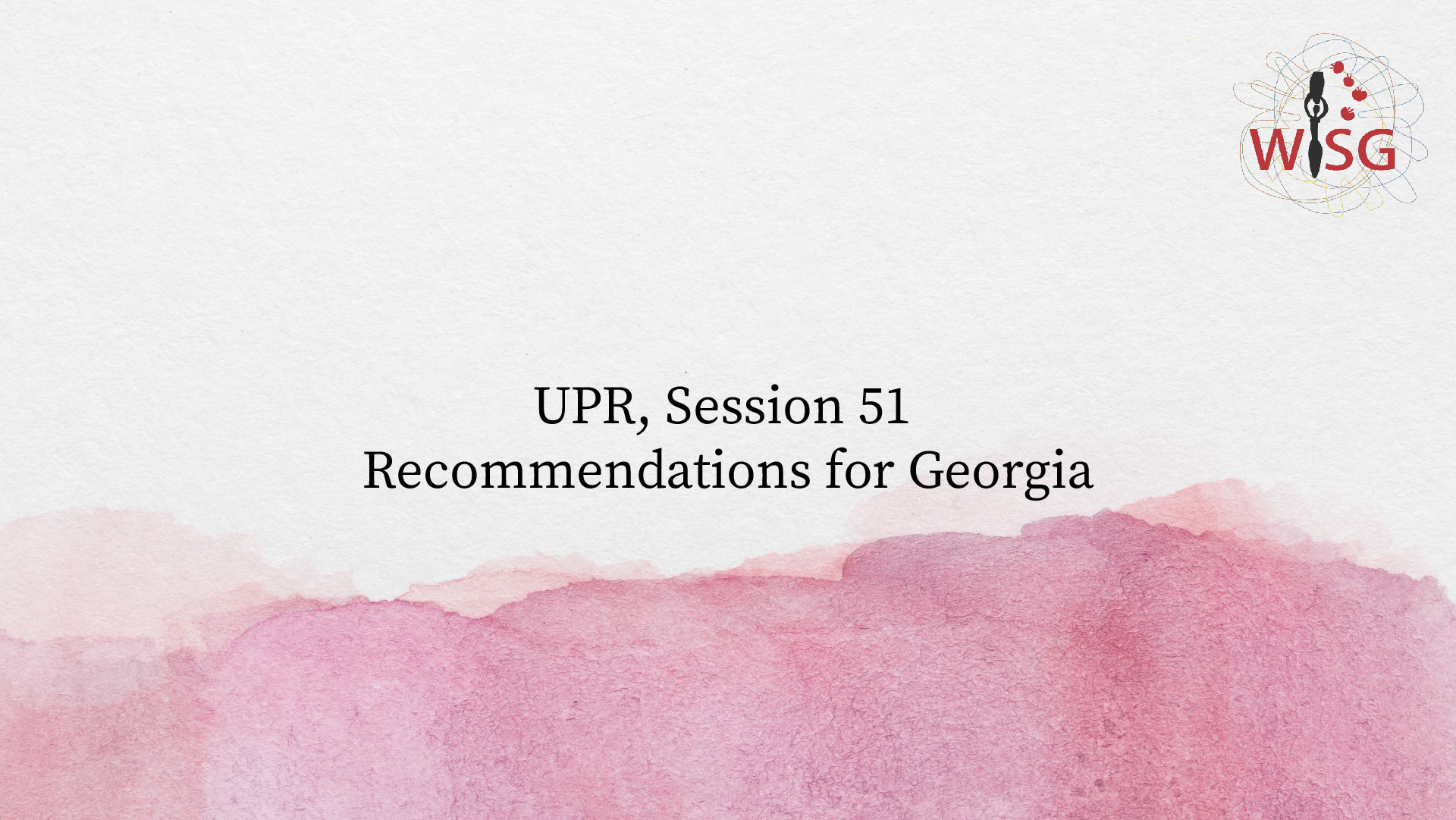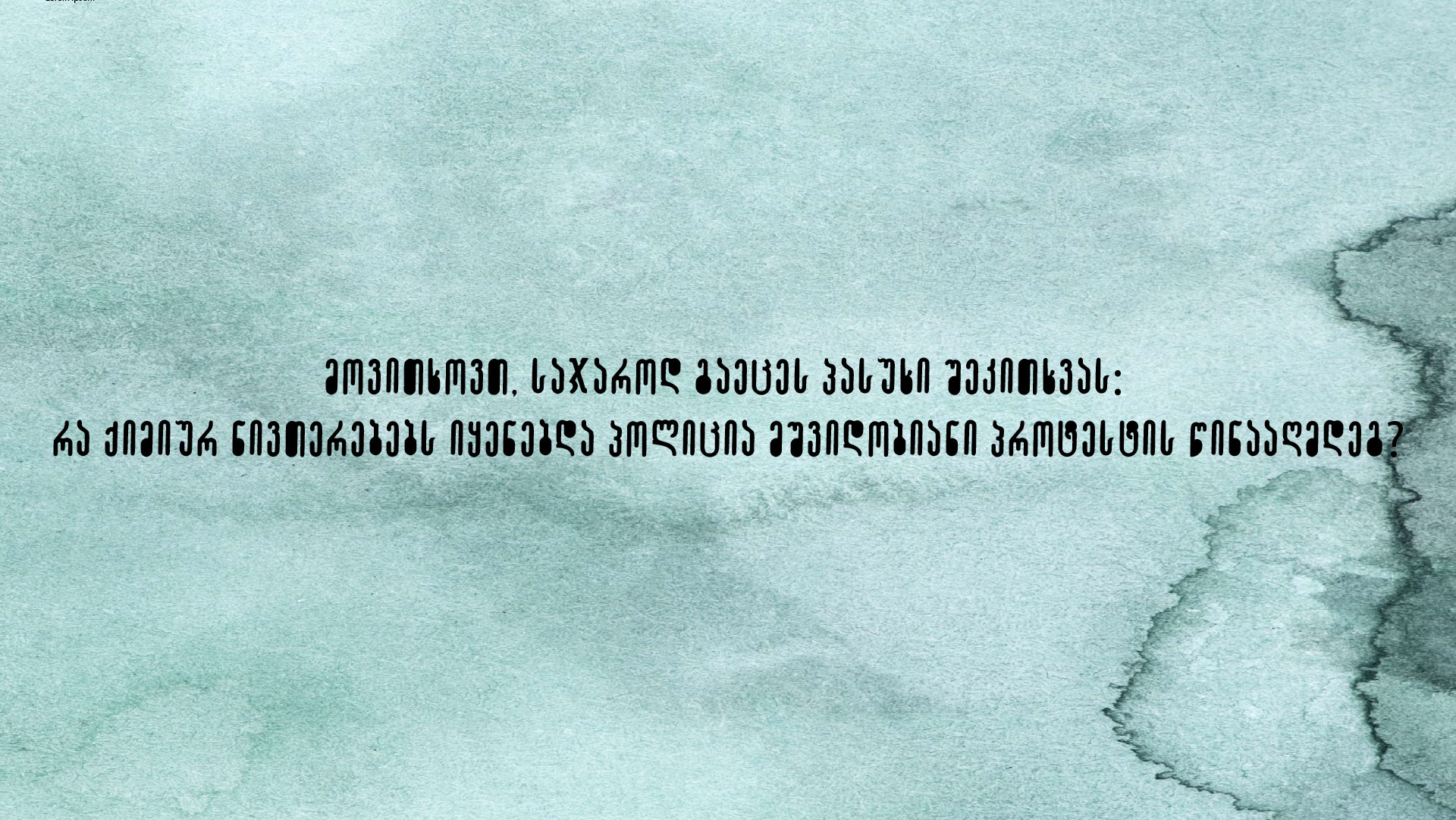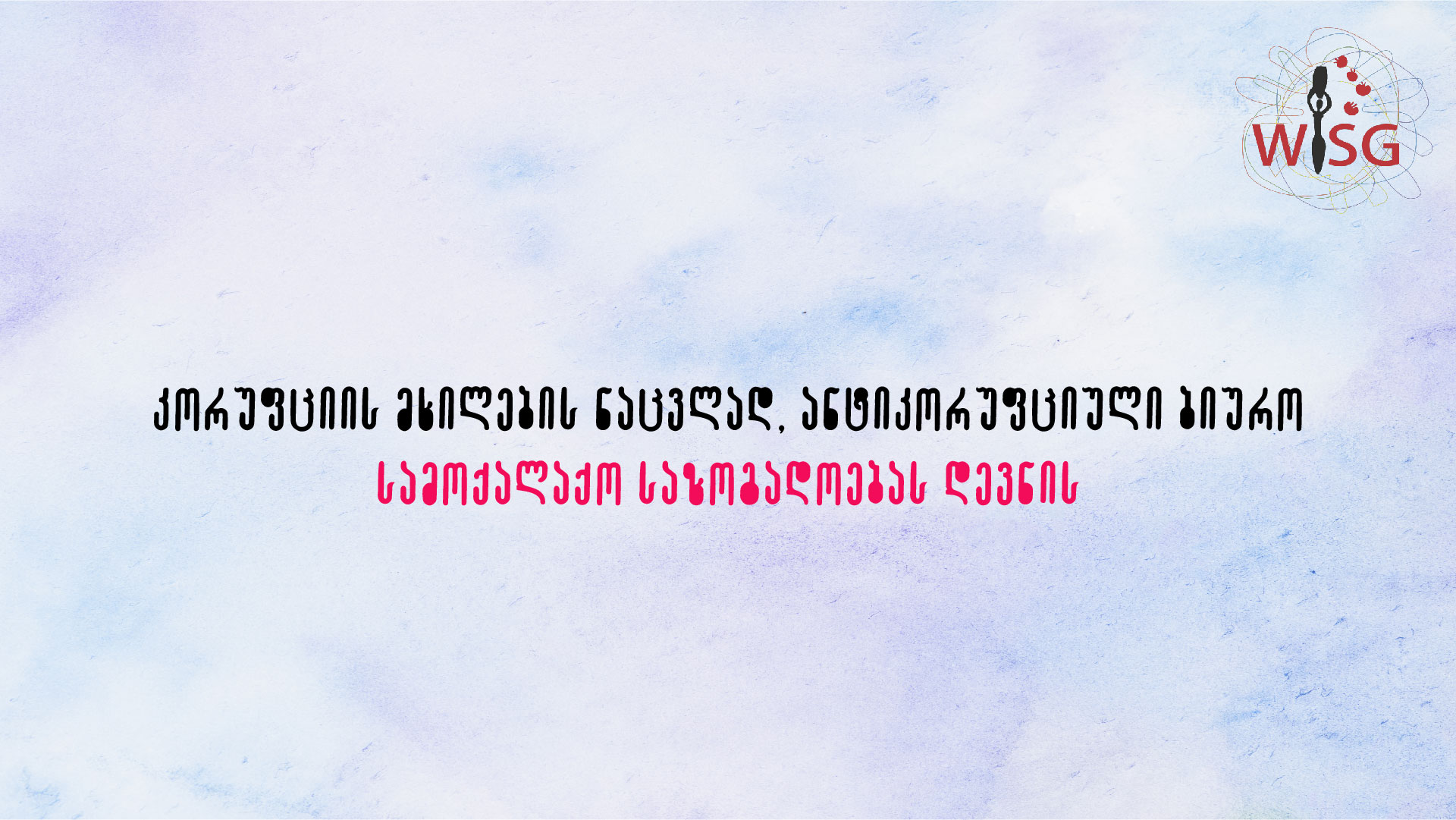EHRAC-WISG Press Advisory: European Court of Human Rights to pass judgment in case brought against Georgia concerning police raid on country’s first ever LGBT NGO
On Thursday 8 October 2020, the European Court of Human Rights will pass judgment in a case brought against Georgia concerning a 2009 police raid on the country’s first LGBT organisation.[1]
The applicant Ekaterine Aghdgomelashvili is a co-founder and current board member of Women's Initiatives Supporting Group (WISG), and co-founder of the Inclusive Foundation (IF). Tinatin Japaridze is a former programms officer of IF and current board members of WISG. They are represented by the European Human Rights Advocacy Centre (EHRAC), an independent human rights centre based at Middlesex University, London. The case was initially lodged by Interights, a UK-based NGO which has since closed down.
What is the case about?
On 15 December 2009 staff members and LGBT community members had gathered at the office, which was shared by Women's Initiatieves Supporting Group and Inclusive Foundation in Tbilisi, to make bracelets for WISG's upcoming art exhibition. At 6-7pm a group of mostly male, plainclothes police officers rushed into the office. They shouted at the staff and dashed from room to room, looking for IF’s director. Phones belonging to staff were confiscated, without explanation.
From the beginning of the search, it was apparent the police did not know the specific nature of the NGO. When they began to understand that they had entered the premises of an LBGT organisation, they became extremely aggressive, uttered homophobic slurs, and openly mocked the individuals present. The police threatened to reveal the sexual orientation of the staff to the public, and to their families. They also threatened to hurt their family members.
Without providing any explanation or informing the women of their rights, the police officers announced that the women had to be strip searched. The strip searches were conducted in the office toilet, on a cold and dirty floor, where the women were humiliated by the police officers’ slurs. No records of the search were drawn up by the police.
Complaints lodged by Elaterine Aghdgomelashvili and Tinatin Japaridze were mostly ignored by the Georgian authorities. An investigation of the police abuse was opened but is still pending at its preliminary stage.
What do the applicants allege?
Firstly, the applicants allege that the police officers subjected them to inhuman and degrading treatment and unlawfully interfered with their private lives during the raid on the NGO’s premises, citing Articles 3 and 8 of the European Convention on Human Rights (ECHR).
Secondly, the applicants reiterate their complaint against the absence of an effective investigation under Article 13 of the Convention, in conjunction with Articles 3 and 8.
Thirdly, the applicants complain, under Article 14 of the Convention and Article 1 of Protocol No. 12, that the interference with their private lives as well as the absence of an effective investigation into the police abuse was conditioned by the relevant authorities’ discriminatory attitude towards the applicants’ actual or perceived sexual orientation and/or their LGBT-related activities.
For more details contact:
The applicants in this case, Ekaterine and Tinatin, are happy to speak to the media, but journalists should first contact:
Nattan Guliashvili (Media Officer, WISG) by email nattan.guliashvili@wisg.org
Philip Leach (Director, EHRAC) by email p.leach@mdx.ac.uk
James Dowsett (Media & Communications Officer, EHRAC) by email j.dowsett@mdx.ac.uk
1 https://hudoc.echr.coe.int/eng#{%22itemid%22:[%22003-6811642-9111829%22]}







